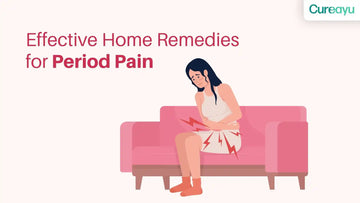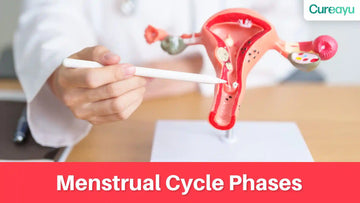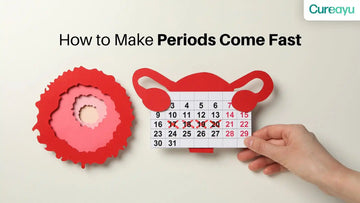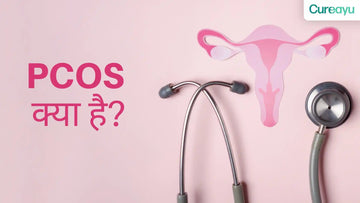Period pain, medically known as dysmenorrhea, is a common experience for many women. The pain can range from mild discomfort to severe cramps that interfere with daily activities. While over-the-counter medications are often used to alleviate the pain, many prefer natural remedies. Home remedies for period pain can offer effective relief without the potential side effects of medications. Understanding the causes and finding practical solutions can make a significant difference in managing period pain effectively.
What Is Period Pain
Period pain typically manifests as cramping in the lower abdomen, but it can also extend to the lower back and thighs. These cramps are caused by the contraction of the uterine muscles as the body sheds the lining of the uterus during menstruation. The pain usually begins one to two days before menstruation and can last for two to three days. For some women, the pain is mild and tolerable, while for others, it can be severe and debilitating. Recognizing the nature of period pain is essential in seeking the right period pain solution.
What Causes Period Pain
- Prostaglandins: High levels of prostaglandins, hormone-like substances, can cause intense uterine contractions leading to pain.
- Endometriosis: A condition where tissue similar to the uterine lining grows outside the uterus, causing severe pain.
- Fibroids: Non-cancerous growths in the uterus can cause more painful menstrual cycles.
- Pelvic Inflammatory Disease (PID): An infection of the reproductive organs can result in painful menstruation.
- Adenomyosis: When the tissue lining the uterus grows into the muscular wall of the uterus, it can lead to severe cramps.
- Cervical Stenosis: A narrowing of the cervix can impede menstrual flow, causing painful pressure within the uterus.
- Genetics: A family history of painful periods can increase the likelihood of experiencing dysmenorrhea.
How to Get Relief Of Period Pain
- Heat Therapy: Applying heat to the lower abdomen can relax the muscles and alleviate cramps. Use a heating pad, hot water bottle, or warm towel.
- Hydration: Drinking plenty of water can help reduce bloating, which often accompanies menstrual cramps. Warm or hot water is particularly effective.
- Exercise: Light physical activities like walking, stretching, or yoga can increase blood flow and reduce menstrual pain.
- Dietary Adjustments: Eating anti-inflammatory foods such as fruits, vegetables, nuts, and fish can help reduce period pain.
- Rest and Relaxation: Adequate rest and stress-reducing activities like meditation or deep breathing exercises can ease period pain.
10 Home Remedies For Period Pain
Ginger has potent anti-inflammatory properties that can significantly help in reducing menstrual pain and improving overall menstrual health. Consuming ginger tea two to three times a day during your period can alleviate symptoms such as cramps, nausea, and headaches. The warmth of the tea also provides a soothing effect, which can further help in relaxing the muscles and reducing tension.
Chamomile is renowned for its antispasmodic and anti-inflammatory properties, making it an excellent natural remedy for menstrual cramps. Drinking chamomile tea can help relax the uterus, thereby reducing the intensity of cramps. Additionally, chamomile has a calming effect on the nervous system, which can help reduce stress and anxiety, common issues during menstruation.
Cinnamon is a spice known for its ability to reduce menstrual pain due to its anti-inflammatory and antispasmodic properties. You can easily incorporate cinnamon into your diet by sprinkling it on your food, such as oatmeal, yogurt, or smoothies. Alternatively, making a warm cinnamon tea can provide immediate relief and comfort during your period.
Turmeric contains curcumin, a compound with strong anti-inflammatory properties that can help alleviate menstrual pain. Drinking warm turmeric milk before bed not only helps in reducing cramps but also promotes better sleep, which is crucial during menstruation. The warmth of the milk combined with the anti-inflammatory effects of turmeric makes this a soothing and effective remedy.
Massaging the lower abdomen with essential oils like lavender, clary sage, or peppermint can provide significant relief from menstrual cramps. These oils have properties that help relax muscles and reduce inflammation. A gentle massage with a few drops of these oils mixed with a carrier oil, such as coconut or almond oil, can ease tension and improve blood flow, thereby reducing pain.
Fenugreek seeds are known for their anti-inflammatory properties and ability to reduce pain. Soaking fenugreek seeds in water overnight and drinking the water in the morning can help ease menstrual discomfort. This practice can also help regulate menstrual cycles and improve digestion, which can be beneficial during periods.
Fennel seeds possess antispasmodic properties that can help in easing menstrual cramps. Boiling fennel seeds in water and drinking the strained liquid can provide relief from pain and discomfort. Fennel seeds also help in reducing bloating and digestive issues, which are common during menstruation, making them a comprehensive remedy for period-related discomfort.
Papaya is rich in carotene, which helps in regulating the menstrual flow and reducing cramps. Eating papaya during your period can aid in easing muscle contractions and promoting a smoother menstrual flow. Additionally, papaya is packed with vitamins and minerals that can help maintain overall health and energy levels during menstruation.
Basil contains caffeic acid, which has natural pain-killing properties. Adding fresh basil to your meals can help reduce menstrual pain. You can also make a basil tea by boiling fresh basil leaves in water and drinking the infusion. This can provide quick relief from cramps and help you stay comfortable throughout your period.
Soaking in a warm bath with Epsom salt can help relax the muscles and reduce cramping. The magnesium in Epsom salt is absorbed through the skin, promoting muscle relaxation and reducing inflammation. An Epsom salt bath can also help in relieving stress and improving your mood, making it a holistic remedy for menstrual discomfort.
Conclusion
Managing period pain with natural remedies can be both effective and comforting. Understanding the underlying causes of period pain is crucial in finding the right period pain solution. From dietary adjustments to herbal teas and heat therapy, there are numerous home remedies available to alleviate menstrual discomfort. These remedies not only provide relief but also contribute to overall well-being during the menstrual cycle. If period pain persists or worsens, it is essential to consult a healthcare professional to rule out any underlying conditions and receive appropriate treatment.












